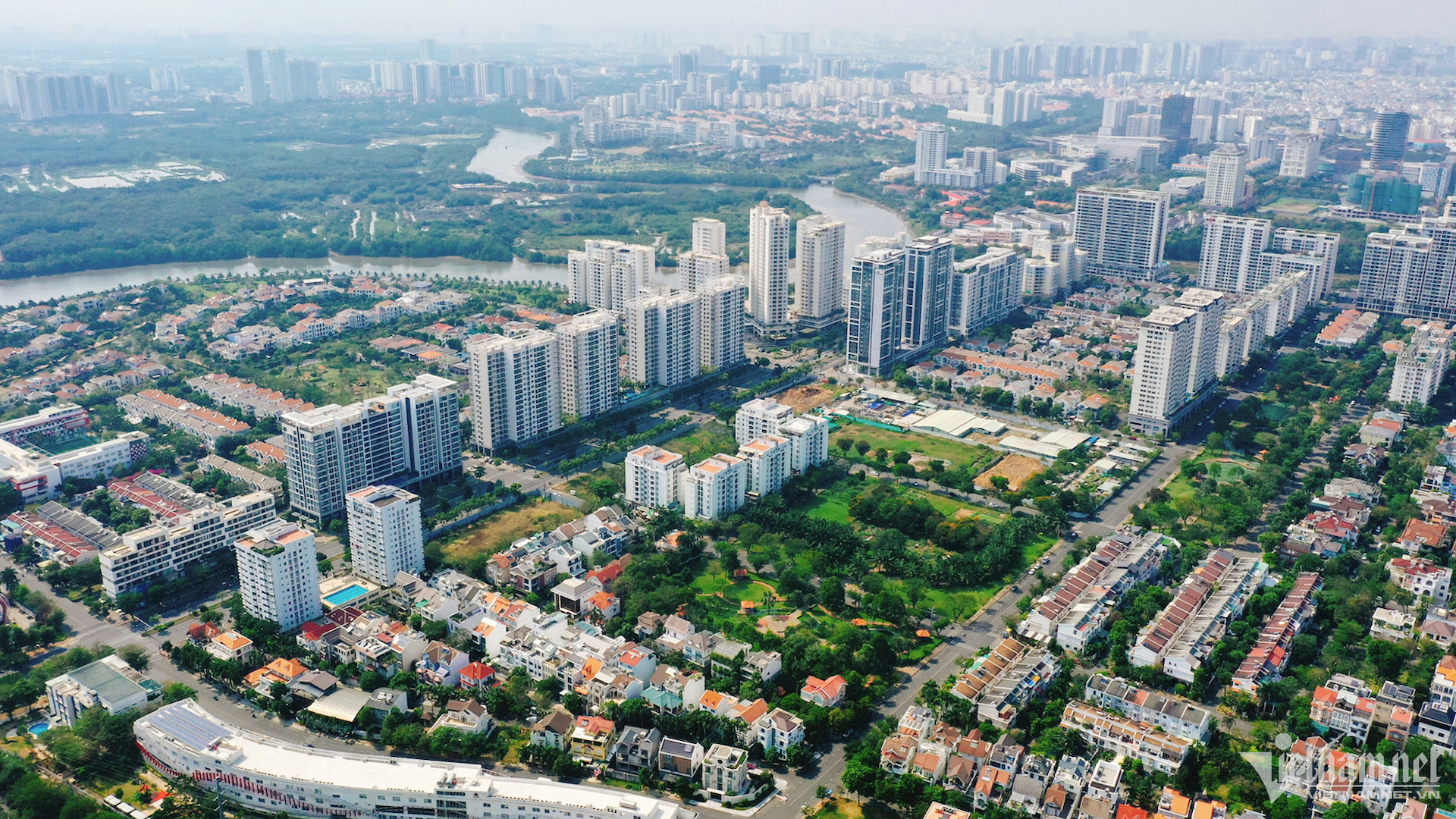
A parliamentary monitoring delegation has recommended swiftly completing research and proposing amendments to tax laws, suggesting higher tax rates for those holding large areas of land or multiple properties, as well as for delayed land usage or leaving land idle.
The National Assembly’s monitoring delegation recently submitted a report to lawmakers detailing the findings of their supervision on “The implementation of policies and laws on real estate market management and social housing development from 2015 to the end of 2023.”
From 2015 to 2021, the real estate market experienced vibrant growth with abundant supply and the emergence of new property types such as condotels and resort villas. However, the delegation noted "inconsistencies" in the structure of the market, highlighting an imbalance between supply and demand, as the market mainly catered to high-end segments aimed at financial investment, with few products suitable for the income levels of the majority.
Entering 2022-2023, the real estate market slowed, and businesses faced numerous difficulties due to issues from 2015-2021 being exposed under the pressure of the COVID-19 pandemic. At this point, the supply was significantly more limited compared to previous years. Property prices skyrocketed, outpacing the income growth of most citizens.
In Hanoi and Ho Chi Minh City, there are no longer apartment segments affordable to the majority.
Statistics show an increasing gap in the real estate market structure. According to a report from the Hanoi People’s Committee, mid- and high-end apartments dominate the market. In 2022, apartment prices rose significantly, but transaction volumes were low, accounting for only about 10% of the units offered, while prices for individual houses remained high with virtually no transactions.
In Ho Chi Minh City, real estate transactions plummeted, while prices surged uncontrollably, reflecting a mismatch between cost and value. The Ho Chi Minh City Real Estate Association stated that, since 2021, there has been no supply of affordable apartments (priced below VND 25 million per square meter).
Meanwhile, numerous housing projects face delays, stagnant progress, and disruptions, leading to significant waste of land and capital investment from enterprises. This situation exacerbates difficulties for investors, driving up product prices.
The report also highlighted the market's imbalances, with an oversupply of high-end, large-area, expensive properties, while there is a shortage of social housing and affordable housing suitable for the needs of the general public.
Moreover, the average price of social housing remains too high for the intended beneficiaries.
“The management of social housing projects still faces many weaknesses. Funding from the state budget for preferential loans for social housing remains low, and the loan application process through the Social Policy Bank is still complex and redundant. The maximum loan limit for social policy beneficiaries is low, which does not align with the current economic and social conditions,” the report noted.
Additionally, the disbursement of a VND 120 trillion credit package for social housing, worker housing, and the renovation and reconstruction of old apartments has been slow, with complex procedures and high interest rates, limiting its effectiveness in attracting developers and buyers to access this funding.
Given this situation, the monitoring delegation recommended that one of the immediate tasks is to find specific solutions to effectively implement the project to build at least 1 million social housing units for low-income earners and industrial park workers from 2021 to 2030, ensuring progress, quality, and suitability with the needs and living conditions of the beneficiaries.
In the long term, the delegation proposed swiftly completing research and suggesting amendments to tax laws, with regulations on higher tax rates for those using large land areas, multiple houses, delayed land usage, or leaving land idle. These measures aim to align with new policies on land law reforms, enhance land management efficiency, achieve income redistribution, and provide stable revenue for the state budget, based on international practices and Vietnam's economic and social conditions.
Hong Khanh